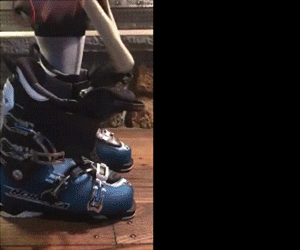skibum4ever
Angel Diva
DH catches me limping sometimes too, just a habit from years of having a bad knee and then a new healing knee.
After I had my TKR, the surgeon told me that when he opened up my knee, I didn't have an ACL. I tore it in 1980 skiing in Sun Valley and I guess it degenerated over the years. That area of my knee ached for years, before being supplanted by the greater ache of my tibia fracture repair and the increasing arthritis.
I was surprised that I'd been skiing, maybe for years, without an ACL. This may have contributed to the arthritis that eventually led me to the TKR in June.
Sounds like you're progressing well. Watch out for those uneven surfaces.
After I had my TKR, the surgeon told me that when he opened up my knee, I didn't have an ACL. I tore it in 1980 skiing in Sun Valley and I guess it degenerated over the years. That area of my knee ached for years, before being supplanted by the greater ache of my tibia fracture repair and the increasing arthritis.
I was surprised that I'd been skiing, maybe for years, without an ACL. This may have contributed to the arthritis that eventually led me to the TKR in June.
Sounds like you're progressing well. Watch out for those uneven surfaces.




